Our third HUN-REN Strategic Workshop held on 20 and 21 March featured a number of outstanding speakers and presentations on the comprehensive scientific evaluation of research sites, recent international benchmarks, topics related to the daily work of researchers, including the reduction of administrative burdens, researcher salaries and establishing the conditions for advancement.
The panel discussions provided an opportunity for the leaders of research institutes operating in the fields of life sciences (LIFE), mathematics and natural sciences (STEM) and humanities and social sciences (SHAPE) to share ideas on key concepts such as strategic vision, innovation, impact and the importance of collaboration.
Sixty young researchers from the network were invited for the second day to share their views directly with the management of HUN-REN and ask questions about the future of the network. The leaders of HUN-REN Headquarters (HUN-REN HQ) pay special attention to the career development of this talented young generation of researchers and to fostering their collaboration within the scientific community.
Around one hundred and twenty participants in attendance, including several world-renowned researchers, were welcomed by Balázs Gulyás, President of HUN-REN, who mentioned that this was the third time during his term as President that a workshop had been organised, where the main focus was on the dialogue between the network's management and the leaders of the research institutes. Balázs Gulyás pointed out that the Hungarian Research Network is in the middle of a process aimed at working with researchers to shape the guidelines for the future and make advances in scientific achievements. The upcoming fourth workshop will be held on 26 and 27 June.
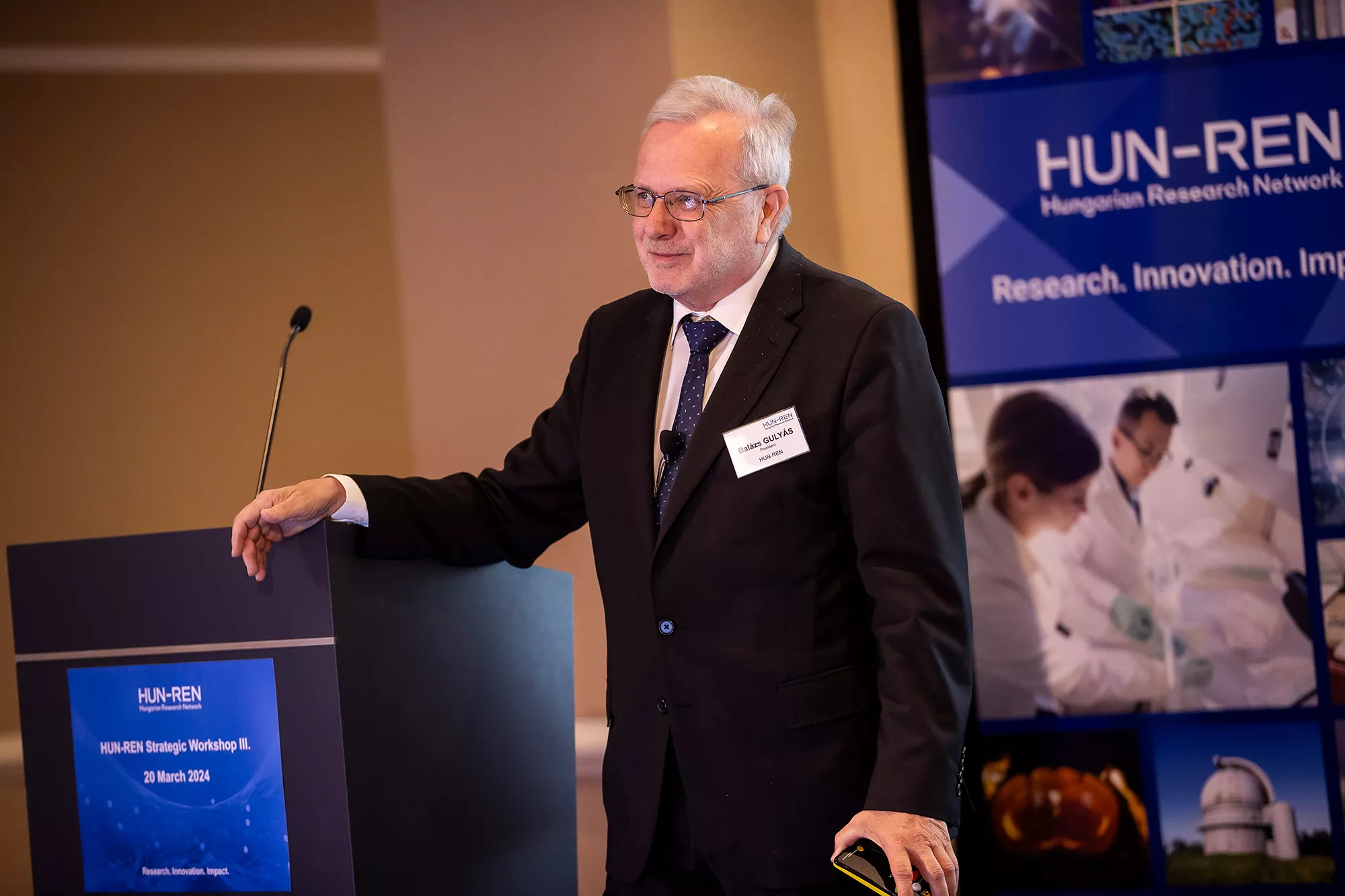
HUN-REN's leaders are committed to fine-tuning the HQ's workflows in order to operate a supportive and service-oriented organisation that serves the entire HUN-REN community, with raising additional funds being among the top priorities.
In his presentation entitled "Pathways to Crafting Our Future", HUN-REN CEO Roland Jakab explained that the excessive level of current administrative duties represents an unnecessary burden for researchers and takes time away from research. Therefore, in order to reduce this administrative burden, HUN-REN is introducing a new institutional governance system that will decrease the administrative workload of employees in a number of ways at both HQ and network level. The system will not only help with administrative data processing, but will also integrate state-of-the-art artificial intelligence applications with the research activity. The new institutional governance system is designed to ensure that the management of resources is efficient and transparent, and to support the success of researchers and the advancement of young researchers, offering them a predictable path for the future. Roland Jakab pointed out that the new system will be introduced gradually, initially through a pilot programme, taking into account the specific features of the institutional system and good practices that have been gathered, while at the same time preserving values.
The implementation of the strategy of the HUN-REN Hungarian Research Network will be supported by a strategic project organisation consisting of eight teams to begin work on 15 April. Delegates of the institutes are invited to participate, with the aim of strengthening the dialogue between the Centre and research sites.
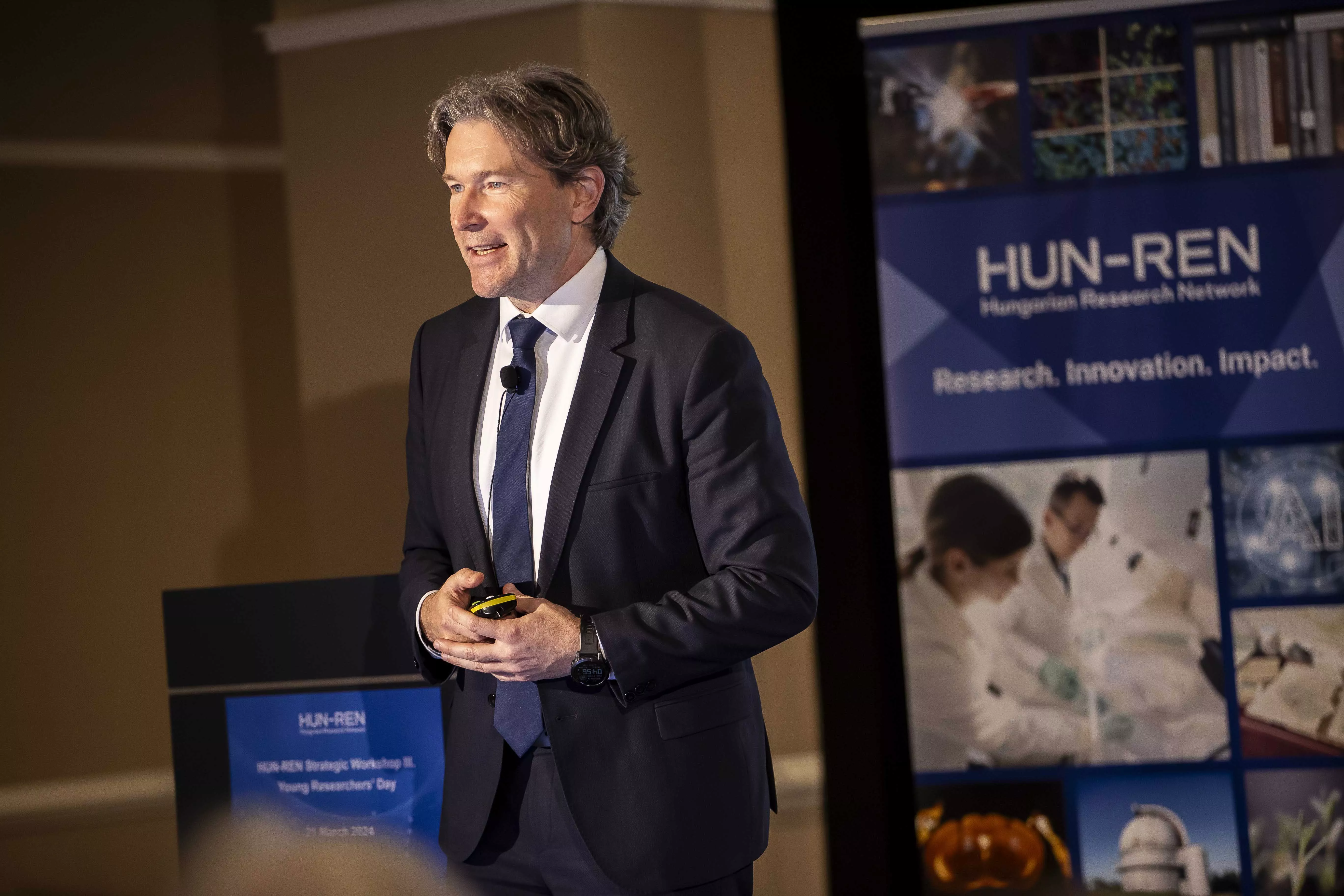
He underlined that the results of the ongoing research site evaluation involving internationally renowned professors will show how research sites can make a more significant contribution to economic and social innovation, enabling more competitive salaries for researchers and other employees within the research network. Similar to the Welcome Home Programme, this could serve as an incentive for Hungarian researchers to return to their homeland.
At the end of his presentation, Roland Jakab spoke about the artificial intelligence (AI) ambassador programme and the necessity of using artificial intelligence. He underlined that HUN-REN HQ has launched a new initiative called the AI Action Plan, which is treated as a strategic priority. Work has begun on exploring the research applications of AI as well as good national and international practices, and on developing a comprehensive researcher training and competence building programme. As part of the AI Action Plan, research sites have begun setting up a network of AI ambassadors, whose members are able to use their relevant experience to act as a bridge to their fellow researchers whose work could benefit from the use of AI tools.
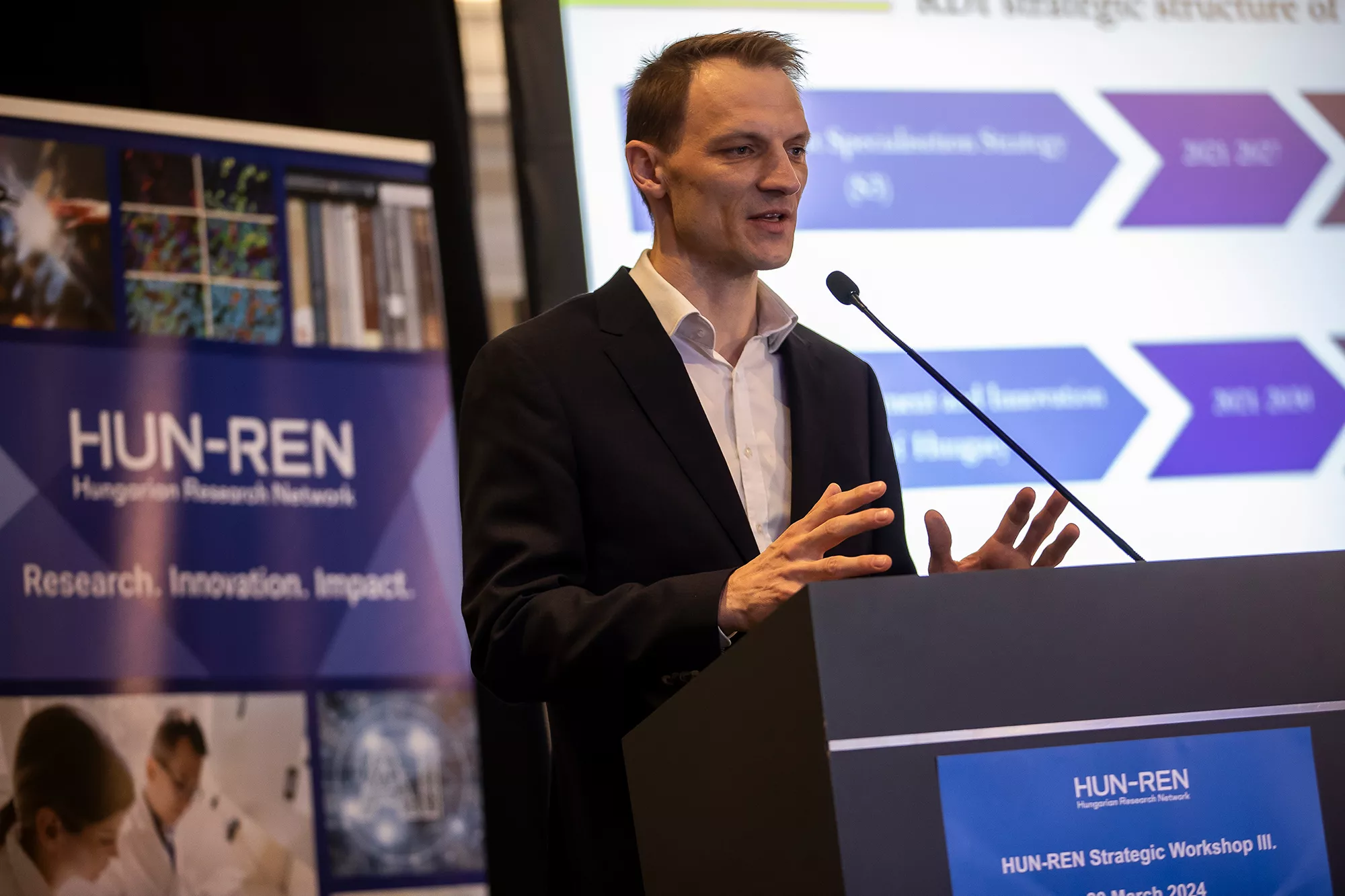
In his presentation, László Lengyel, Vice President for Science and International Affairs at the National Research, Development and Innovation Office, outlined Hungary's RDI strategy. It is based on three pillars: the National Smart Specialisation Strategy, the Research, Development and Innovation Strategy of Hungary, and the John von Neumann Programme. The latter is perhaps the most important, aiming, among other things, to internationalise Hungarian research and to promote the marketing of outstanding ideas for innovation.
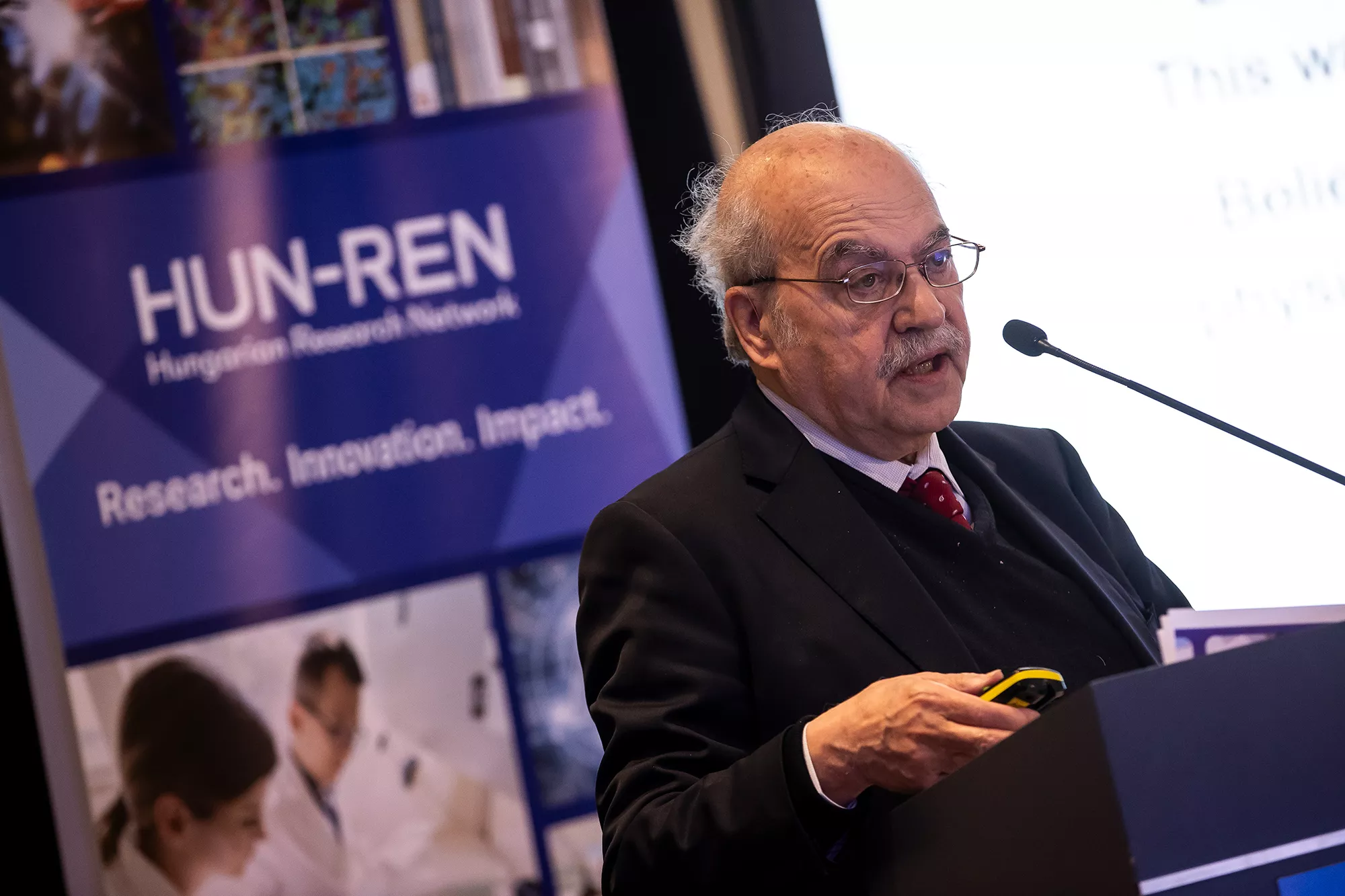
Andreu Mas-Colell, member of the HUN-REN President's Circle, former Minister of Economy and Knowledge (2010–2016), former Secretary General of the European Research Council (ERC), and currently President of the Barcelona Institute of Science and Technology, presented the institute in Barcelona created in 2015 to support multidisciplinary research that brings together seven research centres, and outlined the challenges and pitfalls of its implementation. He explained that the development work in Catalonia, a region with nearly 8 million inhabitants, had begun in 2000, with 12 universities and 25 research centres operating there at the time. The presentation demonstrated how Catalonia, and Barcelona, in particular, has become one of Europe's leading knowledge centres.
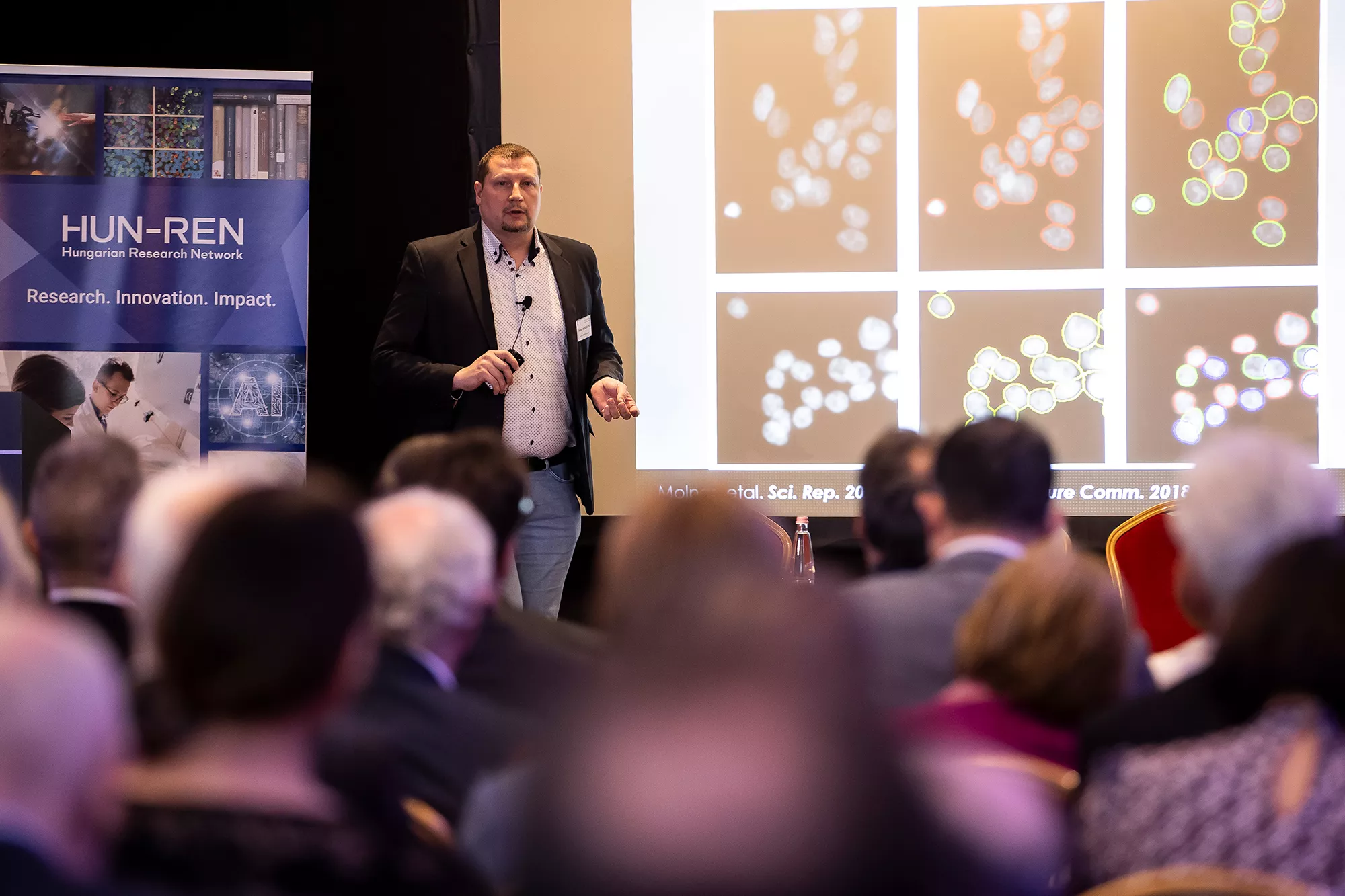
Péter Horváth, Director of the Institute of Biochemistry at the HUN-REN Biological Research Centre, Szeged, introduced the audience to the details of the AI image processing method they have developed, which has pushed cell characterisation to new heights by using a microscope to take a high-resolution image of a paraffin tissue sample taken from a patient's tumour, which is then analysed by a machine learning algorithm to select cells with abnormal morphology. These cells are then excised using the precise laser microscope and are sent for molecular analysis.
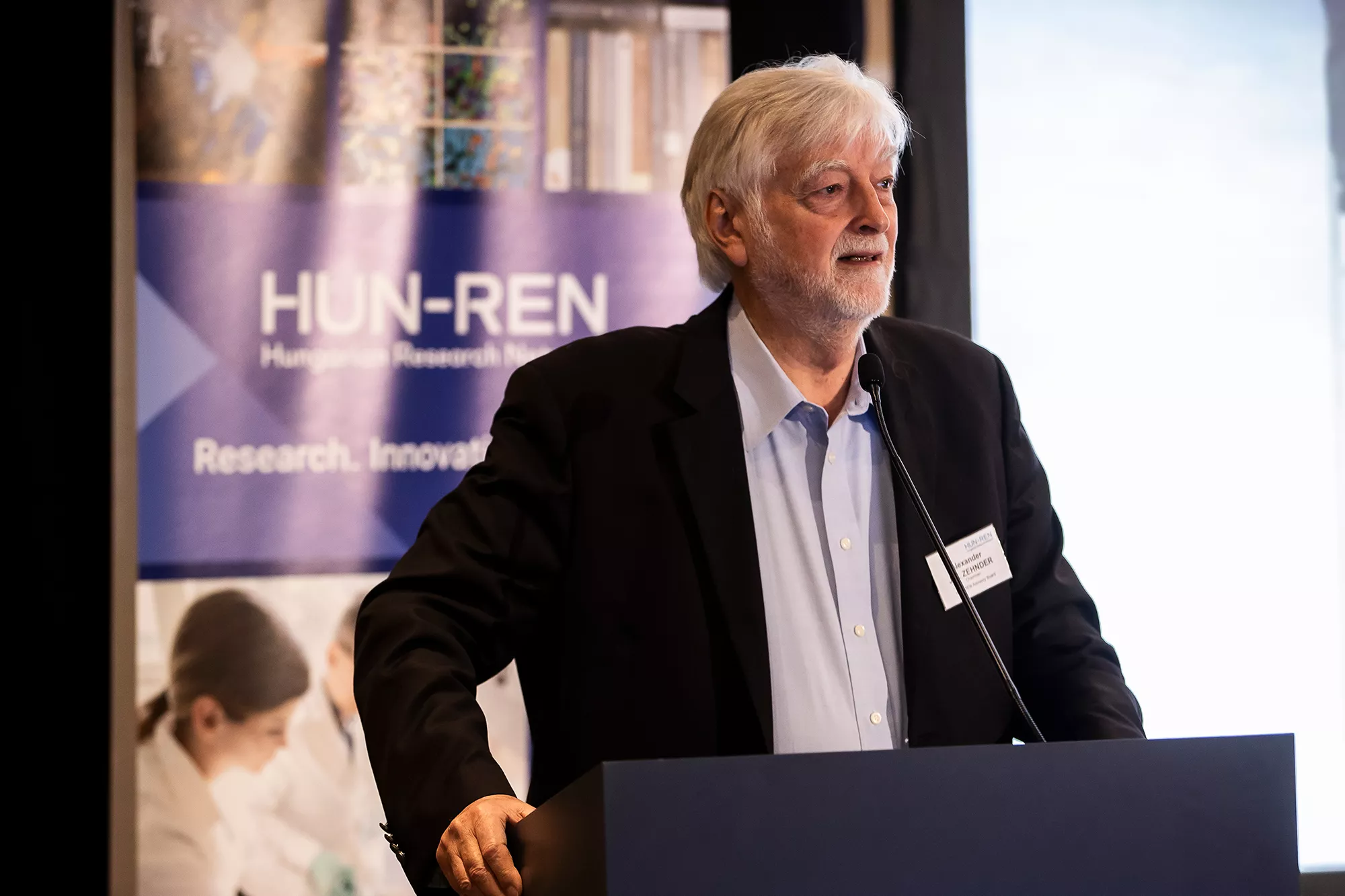
In his presentation, Alexander J. B. Zehnder, Chairman of the HUN-REN Advisory Board and head of the research site evaluation committees, who has been involved in the management of universities at the top of international rankings for decades, explained that they had visited the institutes focusing on life sciences and that the on-site evaluation of the seven institutions of the network operating in the fields of mathematics, natural sciences, engineering and information technology had recently been completed. This process involves the leaders of the given centre or institute in all cases.
Based on the visits that have taken place so far, the evaluation committees, whose members include internationally renowned researchers, have concluded that HUN-REN's research sites are unique assets for the nation, with many dedicated young people engaged in world-class research. All in all, what they saw was that most colleagues "pour their heart and soul" into research, and many of them are able to achieve exceptional results. Some groups and institutes are among the best in the world, while certain research topics are unique on a global scale. As far as infrastructure is concerned, many places have world-class facilities, although some equipment would need an upgrade in certain cases.
The second day of the workshop focused specifically on young researchers. As President Balázs Gulyás said, the leaders and advisors of HUN-REN would like to learn about the visions and opinions of young researchers, both during the panel discussions and in an informal way.
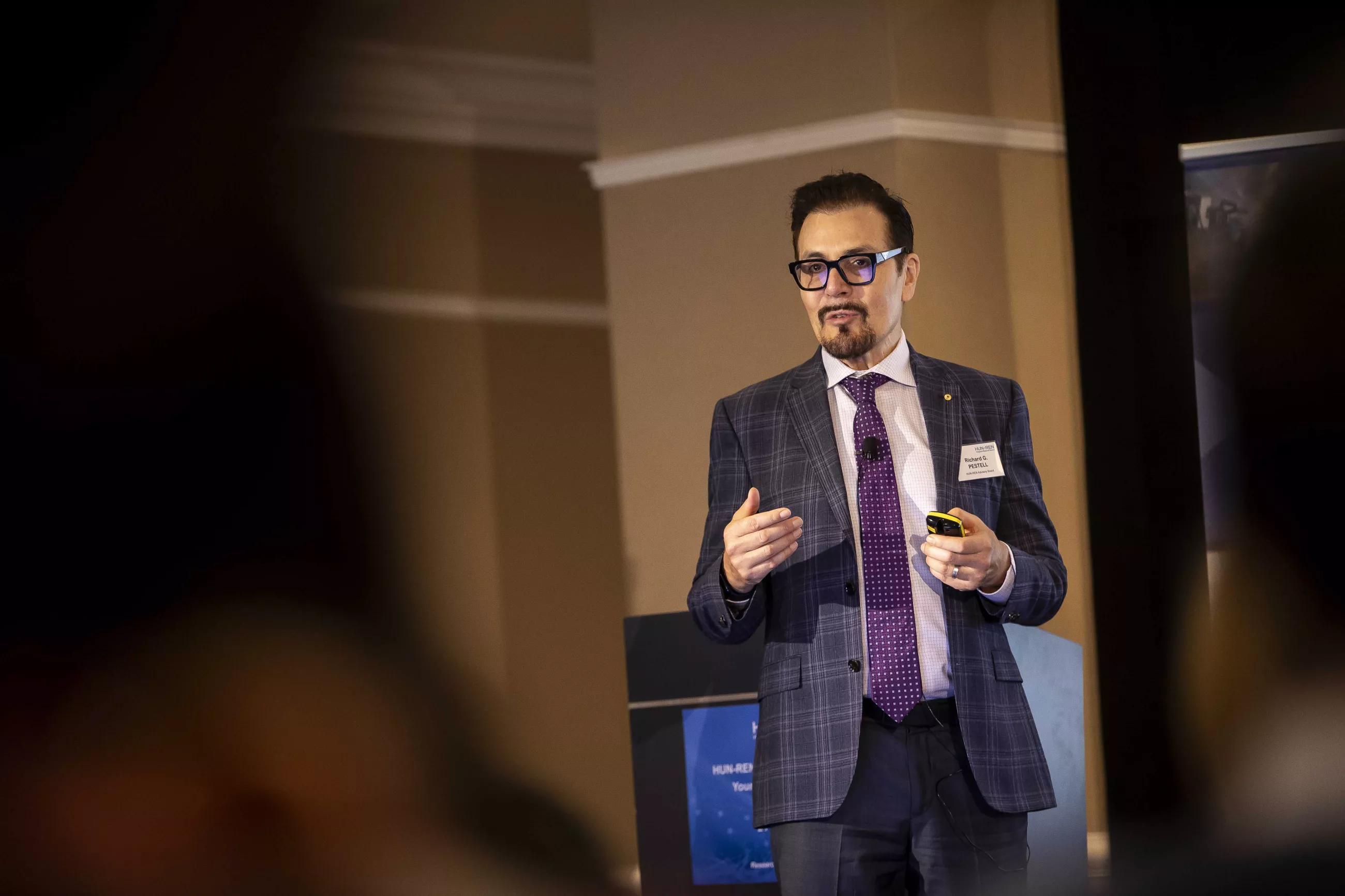
The first speaker on the second day was Richard Pestell, one of the world's leading cancer researchers and member of the HUN-REN Advisory Board, who examined the significance of the global innovation index and the factors used to calculate the index, showcasing Hungary's position in the innovation rankings. The researcher also outlined the extremely long process which begins with scientific discovery, continues with technology demonstration and development, and eventually leads to commercialisation.
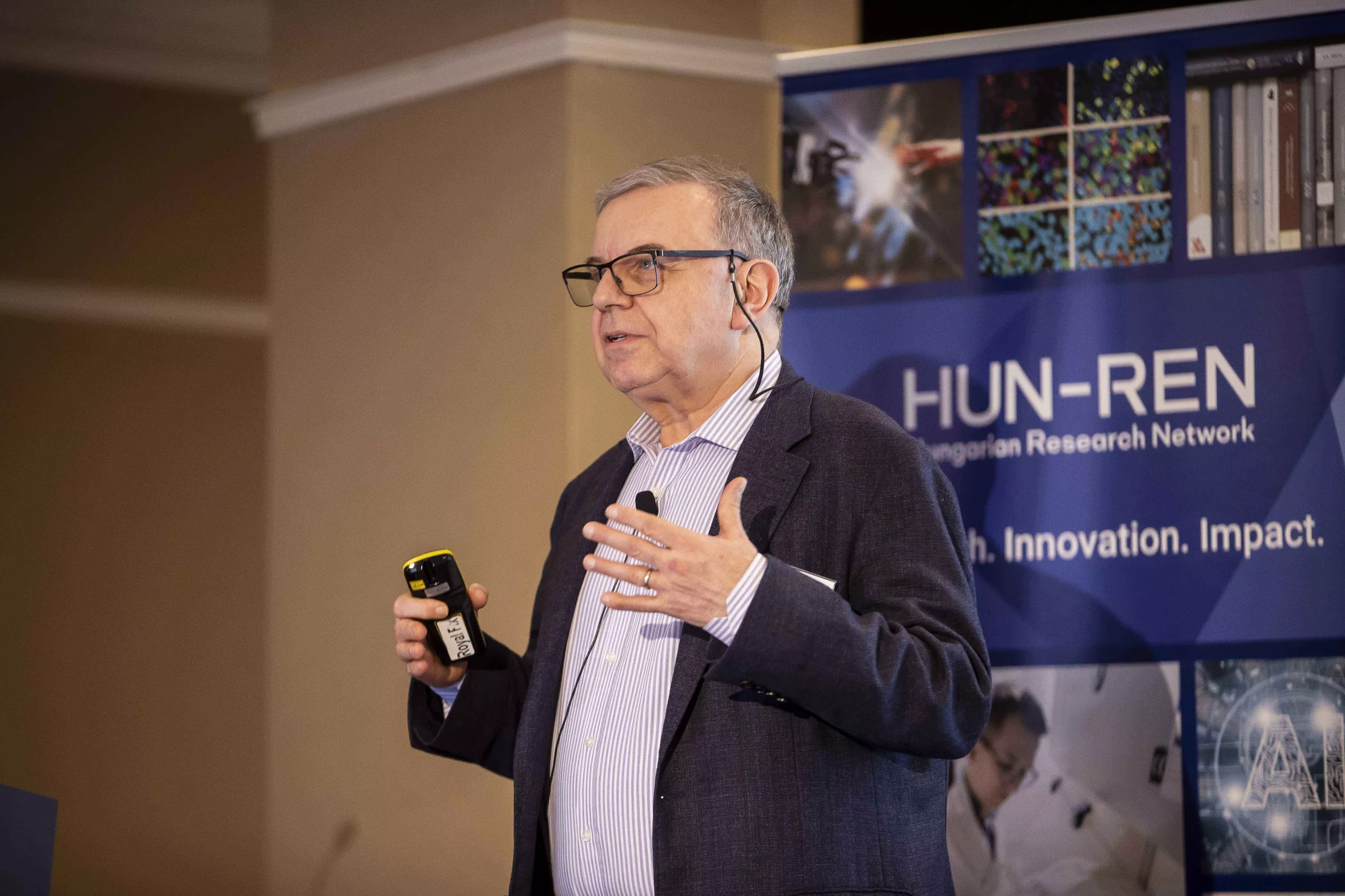
Sir Philip Campbell, former editor-in-chief of Nature and member of the HUN-REN President's Circle, discussed ways to strengthen the impact of scientific research. He devised and analysed four categories from HUN-REN's perspective: medium-quality research with low impact, medium-quality research with high impact, high-quality research with low impact and high-quality research with significant impact. He also spoke about the importance of social and local impact, as well as the advantages and disadvantages of open access publications.
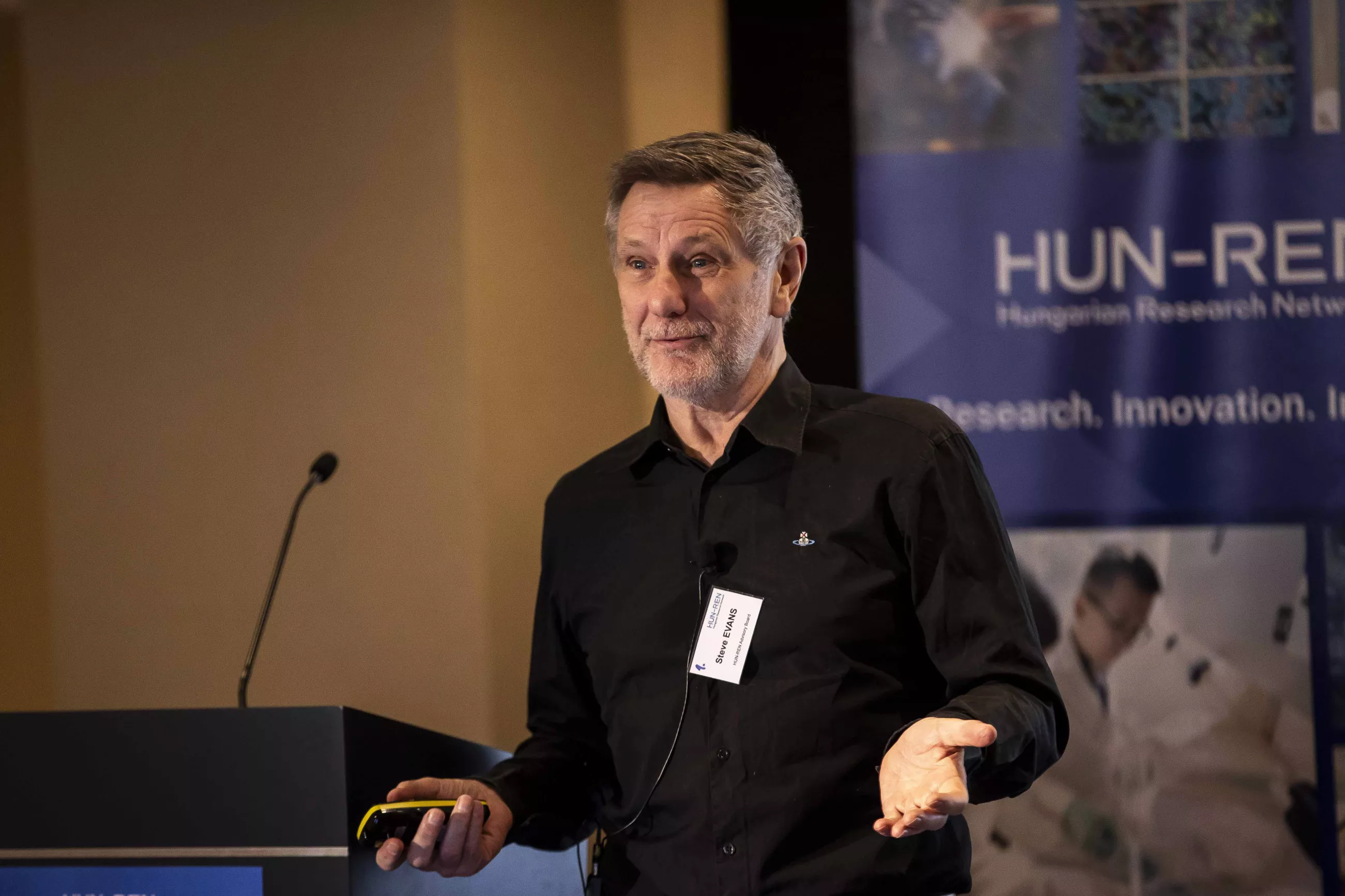
In his presentation entitled "A current Scientific Revolution: having fun, working with nice people, saving the planet", Steve Evans, Professor and Director of Research at the Centre for Industrial Sustainability at the University of Cambridge and member of the HUN-REN Advisory Board, discussed the current challenges facing scientific research and the significance of a paradigm shift in light of the scientific revolution currently taking place around the world. As a key feature of excellent research capable of achieving scientific breakthrough, he highlighted the pursuit of significant novelties, whether they be conceptual or phenomenological changes.
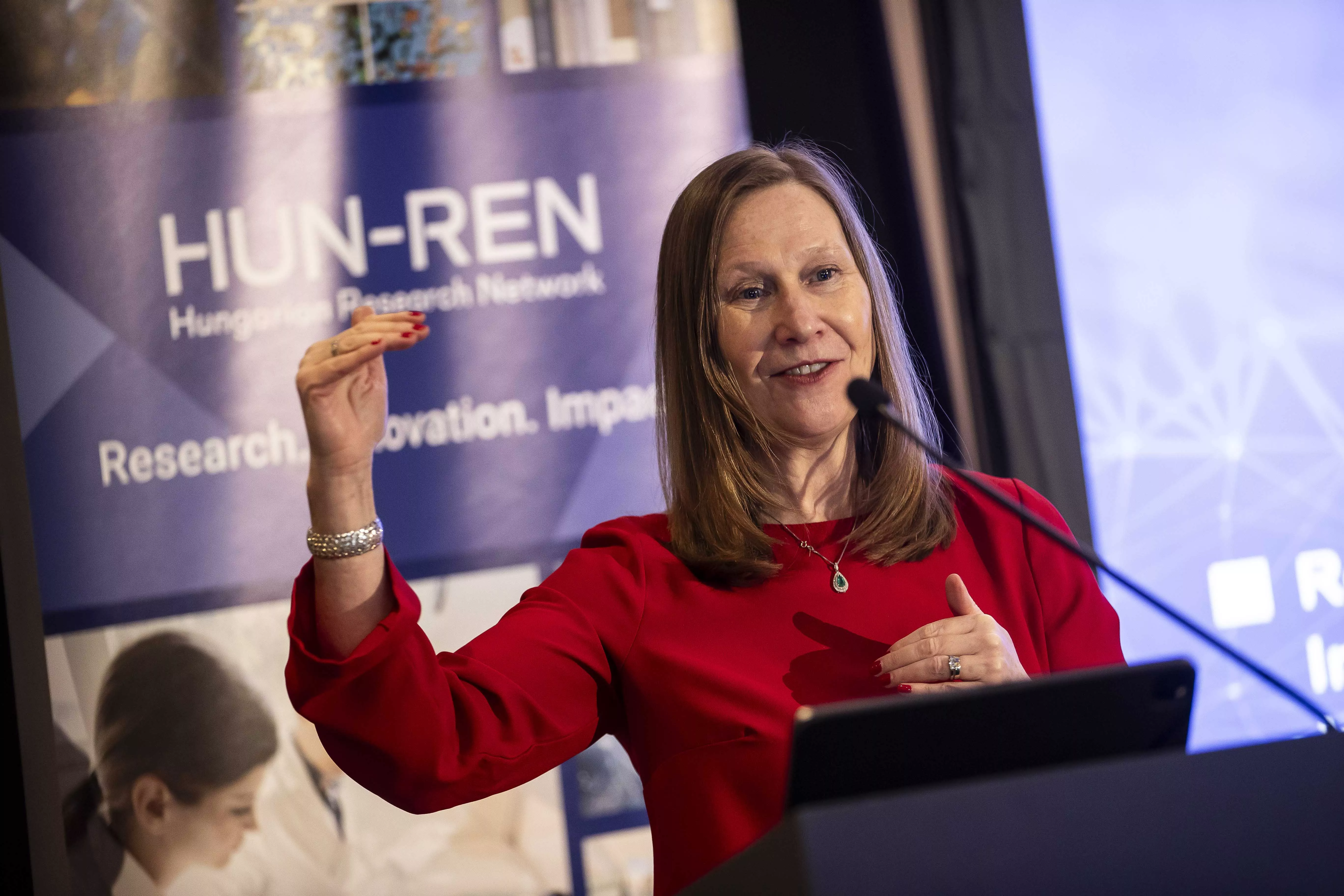
Melanie Seymour, a member of the HUN-REN Advisory Board and the Head of Global Client Service at BlackRock, shared insights from her career spanning over 35 years in finance and banking. During her presentation, she emphasised that ambitious young people face similar challenges in the business world and scientific research, addressing which requires long-term planning, risk-taking, resilience, and understanding one's own capabilities, developmental potential, and available resources.
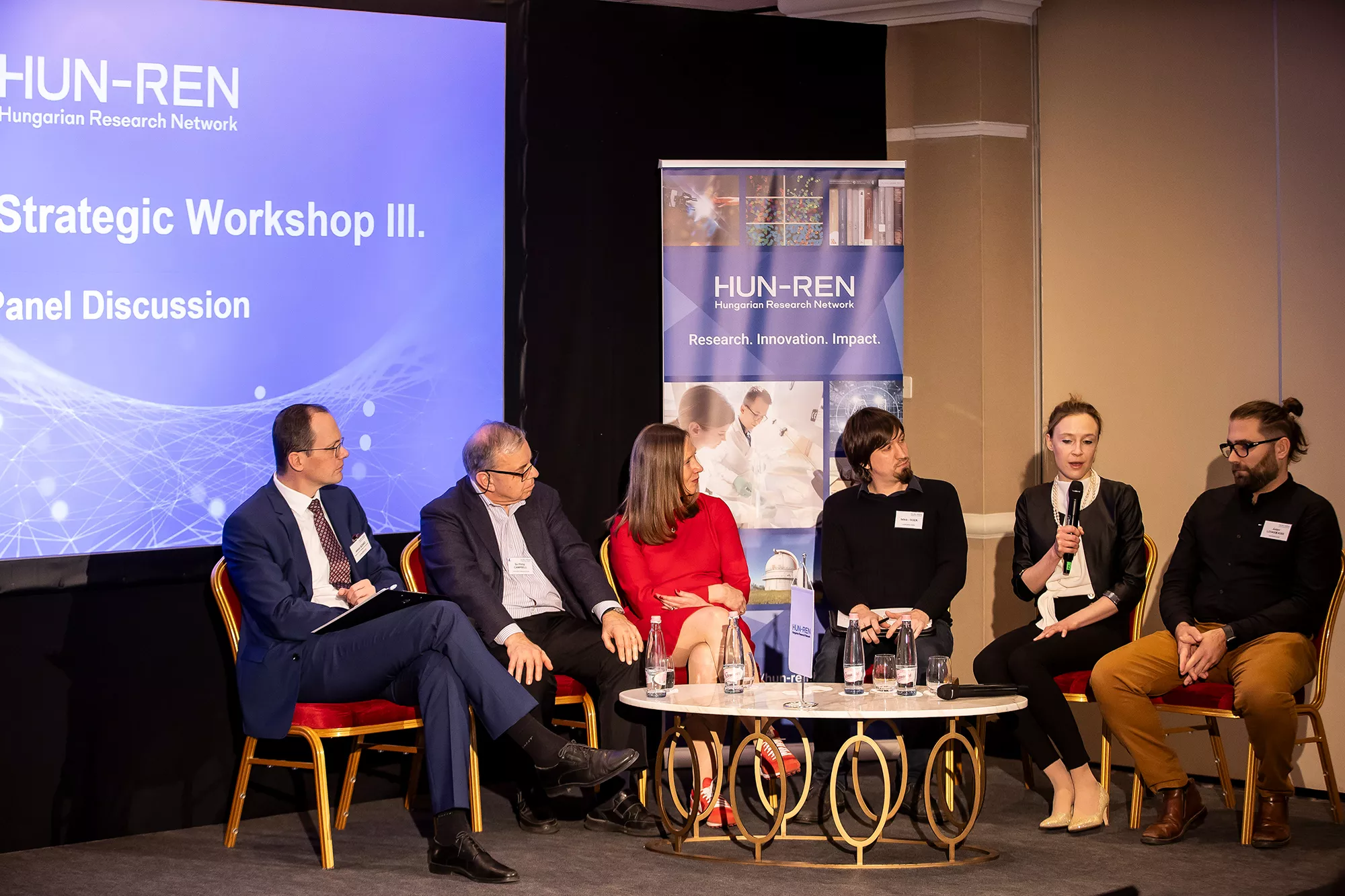
On the second day, two panel discussions were held addressing topics of significant relevance to young researchers. Participating in the first panel were Richard Pestell, Steve Evans, István Szabó ‒ HUN-REN's Deputy CEO for Strategy and Innovation, who also moderated the sessions ‒ András Fejérdy (HUN-REN Research Centre for the Humanities), Imola Wilhelm (Hungarian Young Academy), and Katalin Solymosi (Young Academy of Europe). In the second panel, Melanie Seymour, Sir Philip Campbell, and István Szabó discussed with three young researchers: Susanne Prokop (HUN-REN Institute of Experimental Medicine), István Boza (HUN-REN Centre for Economic and Regional Studies), and Ádám Lovas-Kiss (HUN-REN Centre for Ecological Research). The participants deliberated on issues and shared their experiences related to mentoring, the intellectual, economic, and social impacts of research, infrastructure, resources, and administration, and then replied to questions from the audience. They all agreed that strengthening scientific collaborations between institutions is particularly important for career development and scientific work.